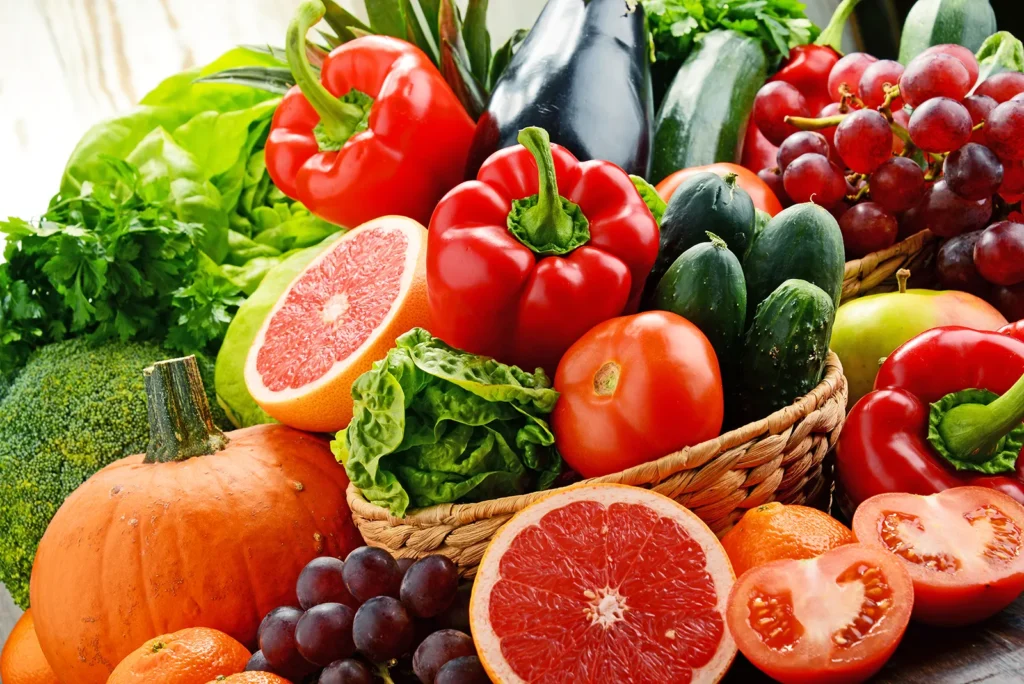The United Arab Emirates (UAE) has recently launched an assessment of its food control systems, a move aimed at enhancing food safety, sustainability, and overall public health across the nation. This initiative underscores the country’s commitment to maintaining high standards of food quality and ensuring the safety of consumers, while also fostering a sustainable food supply chain. As part of the government’s ongoing efforts to align with global best practices, this assessment will help streamline food control mechanisms, identify potential gaps, and reinforce the resilience of the country’s food system.
The Need for Food Control System Assessment
In recent years, the UAE has made substantial progress in diversifying its economy, expanding its tourism sector, and investing in innovation. Food security has become a priority within this larger strategy, particularly given the nation’s dependence on imports for the majority of its food supply. With the population growing and evolving consumer preferences, ensuring a safe, sustainable, and efficient food system has never been more important.
Food control systems play a crucial role in safeguarding public health by regulating food production, importation, storage, and distribution. The UAE, as one of the world’s leading destinations for business, tourism, and luxury goods, has a duty to maintain these high standards and respond proactively to emerging global challenges such as climate change, supply chain disruptions, and new food safety threats. By evaluating its existing systems, the UAE can adopt a more holistic and integrated approach to food regulation.

Key Focus Areas of the Food Control Systems Assessment
The assessment of food control systems in the UAE will focus on a number of critical areas to ensure that food safety and quality standards are met and exceeded. Some of the key areas under review include:
- Regulation and Compliance: One of the most important aspects of the food control system is ensuring that food products are safe and comply with relevant health and safety standards. The UAE’s food safety regulatory framework will be examined to ensure it aligns with international standards such as those set by the World Health Organization (WHO), the Food and Agriculture Organization (FAO), and other global food safety agencies. This will involve reviewing laws, policies, and practices related to food labeling, health certifications, traceability, and hygiene.
- Food Inspection and Monitoring: Another area of focus will be improving the efficiency and effectiveness of food inspections and monitoring procedures. This includes assessing the capacity of national and local authorities to conduct inspections at various stages of the food supply chain. Strengthening this area will help identify issues related to contamination, adulteration, and other foodborne risks that could harm public health.
- Traceability and Transparency: As global supply chains become increasingly complex, traceability of food products has become a key focus for regulators. The UAE aims to ensure that every food item can be traced back to its origin, whether it is a local product or imported from abroad. This will help strengthen consumer trust and accountability, especially in cases of food recalls or safety issues.
- Sustainability and Environmental Impact: Given the growing concern over environmental sustainability, the assessment will also evaluate how the UAE’s food systems can become more sustainable. This includes focusing on reducing food waste, encouraging the use of environmentally friendly packaging, promoting sustainable agricultural practices, and minimizing the carbon footprint associated with food transportation and production.
- Innovation and Technology Integration: In response to the global trend towards technological innovation in food control, the UAE is exploring ways to integrate cutting-edge technologies, such as artificial intelligence (AI), blockchain, and big data analytics, into its food safety systems. These technologies have the potential to enhance traceability, improve supply chain management, and provide more accurate monitoring of food products. The assessment will examine how these technologies can be incorporated into the UAE’s existing food control systems.

Role of Local and International Stakeholders
The UAE’s food control system assessment is not limited to government authorities. The government has actively engaged a wide range of stakeholders, including food producers, retailers, importers, and distributors, to ensure that the assessment covers all aspects of the food supply chain. The involvement of these stakeholders will provide valuable insights into existing challenges and potential solutions for improving food safety and sustainability.

Additionally, international collaboration will play a key role in the success of this initiative. The UAE has always been open to global partnerships, and experts from international food safety agencies, environmental organizations, and industry leaders are expected to contribute their knowledge and expertise. These collaborations will help the UAE incorporate best practices from around the world, aligning its food control systems with the latest global standards.
The Long-Term Benefits of an Enhanced Food Control System
The UAE’s decision to assess and improve its food control systems will yield long-term benefits for the nation, its residents, and the broader regional and global food systems. Some of the key advantages include:
- Improved Public Health and Safety: At the heart of the food control system is the protection of consumers. By strengthening its food safety regulations and monitoring systems, the UAE can significantly reduce the risk of foodborne illnesses and other health issues related to unsafe food consumption. This proactive approach will safeguard public health and foster a culture of food safety.
- Increased Consumer Confidence: Consumers in the UAE and beyond are increasingly conscious of the quality and safety of the food they consume. By enhancing food control systems and ensuring that food products meet the highest safety standards, the UAE will boost consumer confidence and foster trust in its food supply chains.
- Support for Sustainable Practices: A more sustainable food control system will help the UAE reduce food waste, minimize environmental impact, and encourage the adoption of eco-friendly practices within the food industry. This is especially important given the UAE’s commitment to sustainability and its ambitious environmental goals, such as achieving net-zero emissions by 2050.
- Economic Growth and Investment Opportunities: By improving its food control systems, the UAE can create a more attractive environment for international food companies and investors. The assurance of a high-quality, transparent, and sustainable food system will encourage businesses to invest in the UAE, boosting economic growth and enhancing the country’s competitive edge in the global food market.
Government Initiatives and Future Plans
The UAE government has long been committed to food security and safety, and this assessment is part of a broader strategy to reinforce the country’s position as a leader in food innovation and sustainability. The government has already launched several initiatives to enhance food security, such as the National Food Security Strategy 2051, which aims to increase local food production, diversify supply chains, and ensure sustainable access to healthy food for all residents.
This assessment is also in line with the UAE’s broader vision to create a smart, future-ready food system that embraces technology and innovation. As the country moves forward with the assessment process, it is expected that more initiatives will be introduced to ensure that the UAE’s food control systems remain robust, efficient, and adaptable to changing global conditions.
Conclusion
The UAE’s launch of an assessment of its food control systems represents a significant step forward in its efforts to ensure food safety, sustainability, and quality in a rapidly evolving global landscape. By reviewing and strengthening the country’s food safety and regulatory mechanisms, the UAE is positioning itself as a leader in food security and consumer protection. This initiative will not only benefit the UAE’s population but also set a global standard for food control systems, encouraging innovation, sustainability, and collaboration across the entire food supply chain.
Do follow Uae stories for more Updates
Landmark Jebel Ali: A Hub of Growth and Connectivity in Dubai












